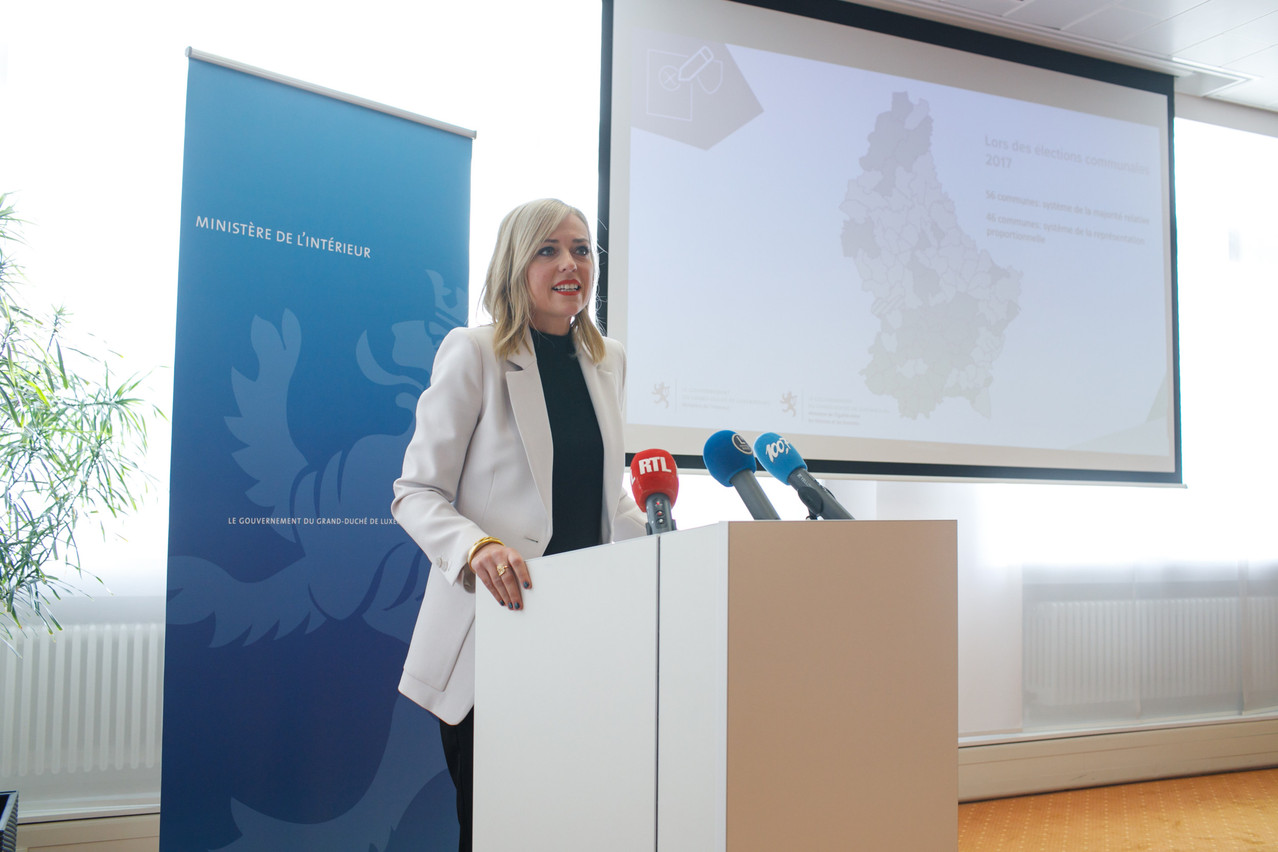On 11 June this year, voters will head to the polls to elect municipal councils across the country’s 100 communes, with 1,121 mandates up for grabs in total.
“We abolished the residency clause of five years because it’s important for us to strengthen citizens’ rights,” Bofferding (LSAP) said during a press conference on Wednesday. “We want more people to be able to take part in the election, to give them a bigger voice.”
EU and non-EU foreigners can already sign up to the voter lists in their commune and , and town halls across the country will open their doors on 18 March for national voter registration day. The deadline for non-nationals to register is 17 April at 5pm.
Once registered, foreigners must head to the polls. Luxembourg nationals are automatically signed up and are subject to the country’s mandatory voting laws.
“In a democracy as many people as possible who are affected by decisions should be able to decide on the political office holders who take these decisions for them,” Bofferding said.
Less than a quarter of non-nationals (22.8%) registered to vote in the last local elections in 2017, up from 17% in 2011.
Women wanted
On 12 April, parties will have to submit their candidates for the election and on 13 April a draw will decide the order in which parties will appear on ballot papers. This same order will also apply for the national elections in October.
Between 20 March and 2 May registered voters living outside of the country, such as students, can request a postal ballot. For people living in Luxembourg this deadline is 17 May. Ballots must be returned by 6 June.
Following the elections on 11 June communes have three months to set up their new town councils and colleges of aldermen--100 mayors, 222 aldermen and 779 local councillors--which must be sworn in by 1 September.
With only around a quarter of posts currently filled by women, Bofferding--who is also minister for equality between women and men--said she hopes more women will join local politics this year.
“This is not ideological,” she said. “When we speak of women, we are speaking of half of the population. Only using half of our population, of our ideas, our competences, our energy isn’t enough. We need more equality.”
Non-nationals account for just 1.3% of local politicians. Only 15 out of 270 candidates running in the election were voted into office.
Majority vs proportionality
There are two separate election systems depending on the size of the commune.
For municipalities with fewer than 3,000 residents, voters select candidates who run individually, the so-called majority voting system. In larger communes, candidates run as part of a party list or group, the proportional voting system. Voters can either select a full list, giving one vote per candidate, or distribute their votes to individual candidates, also across different parties.
Each voter gets a number of votes equivalent to the number of seats on their commune’s council. For example, a commune with 9,000 residents counts 13 members on its communal council, meaning voters have 13 votes they can hand out.
This year, 56 communes are voting under the proportional system and 46 under the majority system.
Bofferding’s ministry has encouraged mergers between smaller communes to get more municipalities above the 3,000-resident threshold.
In the last local elections in 2017 there were insufficient candidates to fill all mandates in four communes. This was down from seven in 2011.
In the long-term Bofferding hopes for a better legal framework for mandates in local politics. A draft law is pending, including obligations for an ethics code but also the possibility to get leave from work for a local mandate.
